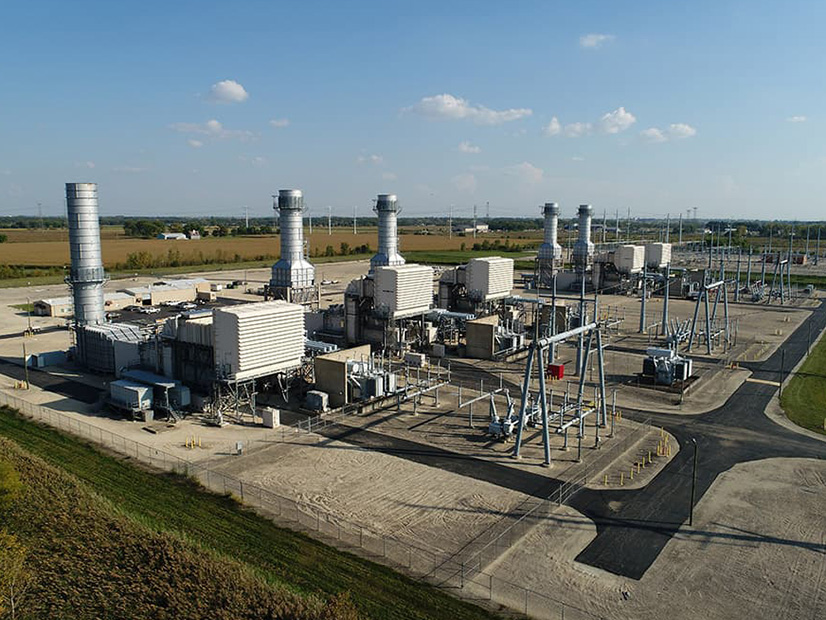The owner of a large gas plant in Illinois has secured a temporary injunction against emissions-control provisions laid out in the state’s Climate and Equitable Jobs Act (CEJA).
J-Power USA’s 1,350-MW Elwood Power Plant is temporarily exempted from the Illinois Environmental Protection Agency’s (IEPA) enforcement of an annual emissions threshold under CEJA. In granting the mid-September injunction, Illinois’ 7th Judicial Circuit Court decided that enforcement of the pollutant cap predated the rules’ official implementation and J-Power didn’t have fair notice (2022-CH-50).
Sangamon County Judge Raylene Grischow ruled that if the IEPA were allowed to enforce emissions caps on Elwood beginning October 2021 as attempted, the plant would be forbidden from producing energy and J-Power would suffer irreparable harm. She said J-Power was unaware in 2021 that its operations would be monitored under a yet unreleased rule.
“The compliance rule is arbitrary and capricious because it demands compliance prior to IEPA’s announcement of how emissions caps were to be calculated. IEPA’s rule, issued in January 2022, declared that ‘any 12-month period’ meant a rolling, 12-month calculation, starting with the period October 2021 through September 2022. Prior to January 2022, energy producers did not have the necessary information to calculate their emissions caps or monitor their ongoing emissions for CEJA purposes,” Grischow wrote.
CEJA established emissions caps for investor-owned, gas-fired units with three years of operating history; those units must not annually exceed an average of their emissions from 2018 through 2020.
J-Power said that Elwood was “obligated to generate power at a higher-than-normal capacity” in the fall of 2021, before the IEPA issued the new emissions caps. The company claimed that by the time the agency announced a retroactive compliance period in January 2022, Elwood already used up more than 80% of its allotted run time for the year based on its emissions, with two of its nine units already maxed out.
After higher-than-normal deployments continued in the spring, J-Power predicted in early summer that Elwood would likely be vulnerable to noncompliance beginning in July. The plant stopped operating completely in September, and J-Power claims it has since lost millions of dollars.
The court said Illinois permitted a “significant implementation gap” and that the IEPA’s “retroactive application of its gap-filling rules” violates the due process clauses of both the U.S. and Illinois constitutions.
“Injunctive relief is necessary to safeguard the benefit Elwood provides to Illinois residents: the grid stability necessary to avoid and recover from blackouts and helping to control energy prices,” Grischow wrote. “If Elwood were to close due to a magnifying injury over the next few weeks, Elwood would no longer exist to operate when the grid needs it. Allowing Elwood to operate in the short term and provide electricity that the citizens of Illinois need is a reasonable and equitable measure.”
The temporary injunction isn’t a statement on the merits of CEJA’s emissions regulations, Grischow said, adding that it’s not the court’s function to answer that “ultimate question.” She also said the injunction is narrow and doesn’t stand to disrupt CEJA in the long run.
CEJA requires all fossil plants in Illinois to close by 2045.
The Illinois Clean Jobs Coalition said it wasn’t surprised that companies dealing in fossil fuel generation would challenge and try to “flout” the emissions limitations.
“The Climate and Equitable Jobs Act’s steady path to eliminating pollution from gas and coal plants is gradual, achievable, good for public health and essential to becoming a leader in the clean energy economy,” the group said in a statement. “We are confident the provisions will ultimately be upheld by the judicial system and thwart Elwood’s efforts to avoid compliance.”


